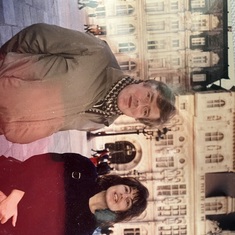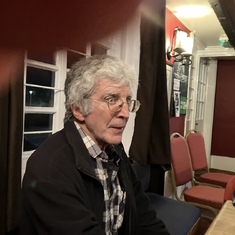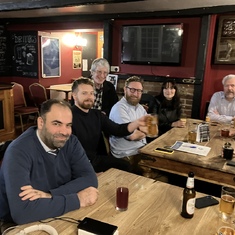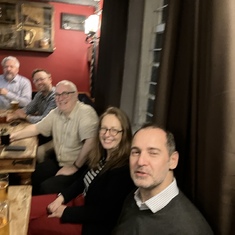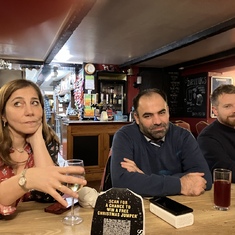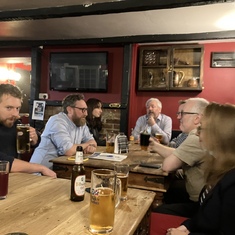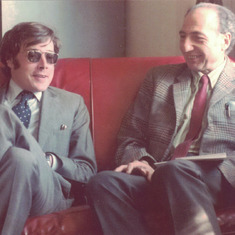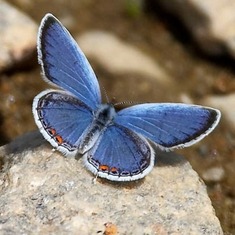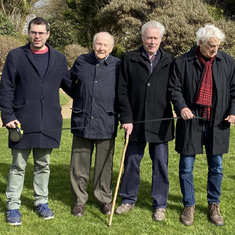From Josh Kaldor Robinson
Eulogy for Julian Perry Robinson
May 6 2020
I would like to talk for a little bit about Dad.
He never spoke much about his childhood or school days, except for often talking about the summers he and his sister Harriett spent in North Wales with his beloved Aunt Poppy although we do know he was a keen athlete, playing for the England school boys hockey team and the Sussex junior county cricket team, and academic winning scholarships to both his school Camford and to Merton College where he read Chemistry, after Oxford he spent a brief period as a patent lawyer before moving to Sweden to work at the Stockholm International Peace Research Institute (SIPRI), where he began his life’s work working to prevent the proliferation of chemical and biological weapons and met mum.
There are many people much more able than me to discuss Dad’s work and the impact it had, what I want to talk about is Dad as an inspiration. Both personally and in the way he instilled his values in his family, friends, colleagues and wider society.
In some ways both of my brothers owe their careers to Dad. It was building model aeroplanes with Dad that started Charlie’s love of model making and in turn his architectural career and olly certainly wouldn’t be an epidemiologist if he hadn’t wanted to be a scientist like his dad. Mum credits Dad’s work ethic as inspiring her own and giving her the motivation to achieve so much. It was also amazing how, in so many of the tributes we received people from all over the world said that Dad had inspired them to be more like him. Another key way he inspired so many of us was in his love of cookery, he took cooking incredibly seriously and treated it almost as chemistry and there were certain recipes, particularly his fish pie, and of course the Soupe au Pistou that he spent his life refining and trying to perfect, while never being satisfied with the final result.
As well as inspiring people to be like him, his values inspired so many of us, particularly through his love of nature and his belief in what I would term civility.
The Perry Robinsons have been keen nature lovers for generations and Dad was no exception, according to Harriet, when he was young he seriously contemplated becoming a farmer, he was always much loved by any animals he encountered as well as keeping cats for most of his life, indeed Lilly and Snowball, just like the rest of us, seem bereft without him, they are definitely becoming more feral without his stabilizing presence.
A country walk with him would take at least twice as long as one would expect owing for the need to stop every five minutes to examine an interesting insect or leaf.
Butterflies and moths were Dad’s particular passion, he was never happier than when we were in La Garde Freinet, particularly at Easter where he could look forward to great food and the chance of seeing large numbers of butterflies. The quality of every walk he went on was measured by the
By Josh Kaldor-Robinson
number of different butterfly species we managed to see, although no walk I ever went on with him matched his legendary 27 butterfly walk in the hills around La Garde.
Indeed, none of us will ever be able to see a butterfly without both remembering Dad and trying to identify the butterfly.
When I talk about Dad’s belief in civility, I don’t just mean treating each other in a polite and civilised manner, although Dad certainly did this, he was unfailingly polite and rarely got angry with anyone outside of his close family, or that he was interested, or at least gave the appearance of interest to everyone he met and would engage them keenly in conversation regardless of the subject and his own interest in it.
But also his civility meant that he believed that it was a moral imperative for everyone to treat each other both equally and well.
This, I think, was the motivation behind his life’s work. As a scientist he couldn’t bear to see the hard won knowledge of biology and chemistry misused and turning into indiscriminate and barbaric weapons. This civility also inspired his politics, he had a deep distrust of the British establishment, despite a background and education that meant he could have easily been at the heart of it, he felt that the establishment could never be trusted to behave in a civilised manner without external pressure holding it to account.
This belief in civility as an imperative to treat each other equally and well also led to his 50 years of membership and support of the Labour Party, 10, probably deeply exasperating, years as a school governor at the difficult comprehensive Olly and I attended, far too much time on the over argumentative and slightly ridiculous Board of Directors of our building in Sussex Square and in the last 4 years going on far more demonstrations than someone whose mobility had become so limited would be expected to manage.
A very fond memory for me is that, the day after Trump had been elected, a demonstration was called in Brighton to protest, Dad had found out, I’m not sure how, possibly from his favourite shop Seed and Sprout, or as he insisted on referring to it, leaf and stem. And he was adamant that the two of us had to go and join the demo. I then got to see the sight of Dad and two of the crustiest Brighton Anarchists you can imagine all chanting “Whose Streets? Our Streets”, definitely something I will never forget.
As well as being a source of inspiration, dad was also happy to be inspired. The biggest inspiration in his life was of course Mum, even after 52 years, they were still utterly devoted to each other, I don’t think I ever heard Dad call Mum by any other name than Sweetie poppet, regardless of where they were, who they were talking to (indeed when they taught together it apparently caused much mirth amongst the students hearing these terms of endearment from such a proper English Gentleman during seminars) or even when they were arguing. The love they shared was so palpable and she certainly encouraged him to get over his social shyness. He would dread every social event Mum
organised, whenever we had a dinner party, he would exaggerate the numbers coming and stress out about it for the whole day until the event arrived at which point he would transform into the perfect host and no one would realise his previous anxieties.
Dad was also often inspired by art and culture, he was a voracious reader of both poetry and prose, a lover of the theatre and art galleries. He also relied on a whole range of cookery writers for inspiration in his cooking, always happy to discover new writers and adjust his cooking accordingly.
Dad, undoubtedly leaves the world in a better place than it would have been without him, he leaves a glorious legacy behind, his 3 children, 5 grandchildren, the transformation of the field of CBW, generations of colleagues inspired by him and of course the Chemical Weapons Convention and the Organisation for the Prohibition of Chemical Weapons. He also leaves behind a massive archive of several million documents that we as a family are determined to digitise and make available for future generations of researchers.
Dad, the world will never be the same again without you, but we will always love you. The way you inspired us and countless others will ensure your legacy lives on.
Goodbye Dad, we love you.


